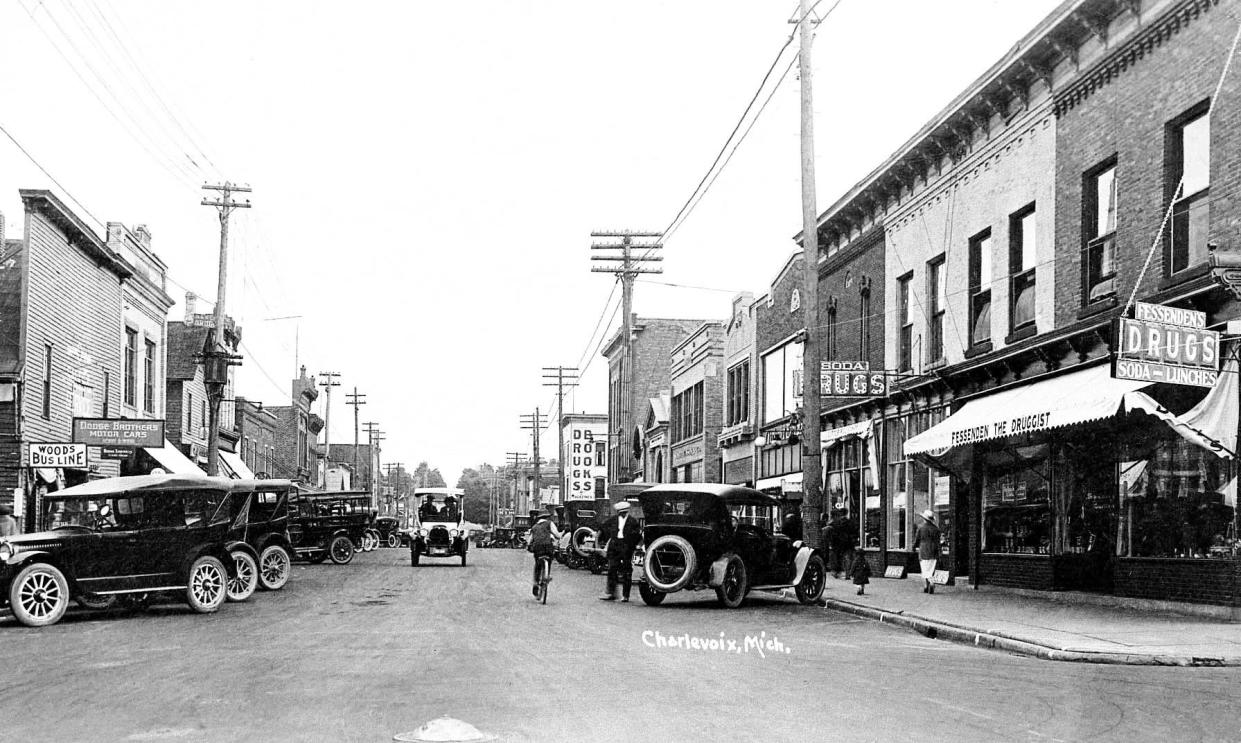Looking Back: Summer woes in Charlevoix

The summer has gotten off to an odd start this year, with a few days of real heat punctuated by nights so cool the windows had to be shut.
The same was true 150 years ago. From the Charlevoix Sentinel, July 6, 1872:
“Weather Capers—95 degrees in the shade on Monday; overcoats and gloves on Wednesday.”
In the same issue, editor Willard A. Smith reported how things got a little out of hand over the holiday: “Charlevoix was not without its excitement on the Fourth. The ‘boys’ all took a holiday, and several of them, for want of better diversion, got drunk on a boat lying at the wharf. (Men of all kinds) united, and with the zeal of true Americans, spent the day in a patriotic spree. Whisky held high carnival the greater part of the forenoon; but two of the most demonstrative were arrested, one put in irons, and both incarcerated in the Laister Store building (on Bridge Street), one on the first floor, the other in the cellar. The latter, in spite of his handcuffs, managed to dig out, and, with true fraternal feeling, found and liberated his fellow citizen. Suffice it to say, our village was the scene of drunken carousels the greater part of the day. We deplore the fact of our authorities not being able to quite put a stop to the traffic at the wharf. Quite often the night is made hideous by the howls of drunks, and in each and every case lives and property are in danger; yet no steps are taken to bring either party to punishment—for one is just as amenable to the law as the other. Why is it?”
More: Charlevoix news from 1872: Creamers, cops and an editor's travels
Subscribe: Subscribe to read more from the Charlevoix Historical Society
Fifty years later another problem arose, this one brought on by the introduction of the internal combustion machine. Charlevoix Courier, July 12, 1922: “STOP IT BEFORE IT HAPPENS. Serious Auto Accidents Are Bound To Happen. The Wild Delivery Boy and His Wild Light Delivery Truck are Proving a Menace. Hardly a day passes when several narrow escapes from collision are reported. Bridge Street is usually so crowded with traffic with little or no regulation. Drivers that surely observe traffic regulations in other cities, upon their arrival here, assume the attitude that we are a ‘hick’ town, the police department is a joke, and they drive about as they please. And we have become convinced, from personal observations, that there is more truth than fiction in this conclusion.
“The handling of tourists and local touring cars could be made an easy matter, but what about the ‘flivver-boob?’ By this word we refer to the wild delivery boy in his equally wild delivery truck. Endowed with the recklessness of youth in the first place, and with a light car that is easily managed in the second place, these boys and young men are literal sore spots on the city. One cannot expect the city to be thoroughly policed insofar as this reckless element is concerned. If we had a dozen traffic policemen they would not be found on side streets or streets where there are the greatest number of homes and children. And it is in these sections of the city that the ‘flivver-boob’ greatly thrives. Here he actually menaces the life and limb of mothers and children. He swings corners at 20 and 25 miles an hour. He is in a hurry because he is anxious to ‘clean up’ his deliveries, he is inconsiderate and thoughtless and foolhardy. He is everything that youth is, plus a sturdy little motor of many horses. That he doesn’t kill and maim more frequently is because he has the populace bluffed—the populace in this instance being principally women and children. But he is wild, wild, and soon there will be a real accident and then a big holler.
“Let’s stop it before it happens. Let’s watch the streets off the beaten track and hold the shop keepers responsible,” meaning responsible for the actions of the young men they hired to make deliveries.
On a personal note, 100 years ago this week the classic Douglas Fairbanks, Sr. silent film adaptation of “The Three Musketeers” reached Charlevoix for an advertised two-night stand. My father, Bob Miles, then age 20, worked as the projectionist for the Palace movie theater at the time, located next to today’s book store on Bridge Street. Those were the days when film projection was still in the primitive, and dangerously flammable, stage. The projectionist had to keep a constant watch on the screen for the signal to change reels. The Fairbanks costume epic turned out to be so popular in Charlevoix that it was held over for several more days, and my father had to suffer through 17 consecutive showings. He made a vow then and there that he would never, ever, watch another screen version of “The Three Musketeers,” and he never did.
This article originally appeared on The Petoskey News-Review: Looking Back: Summer woes in Charlevoix

